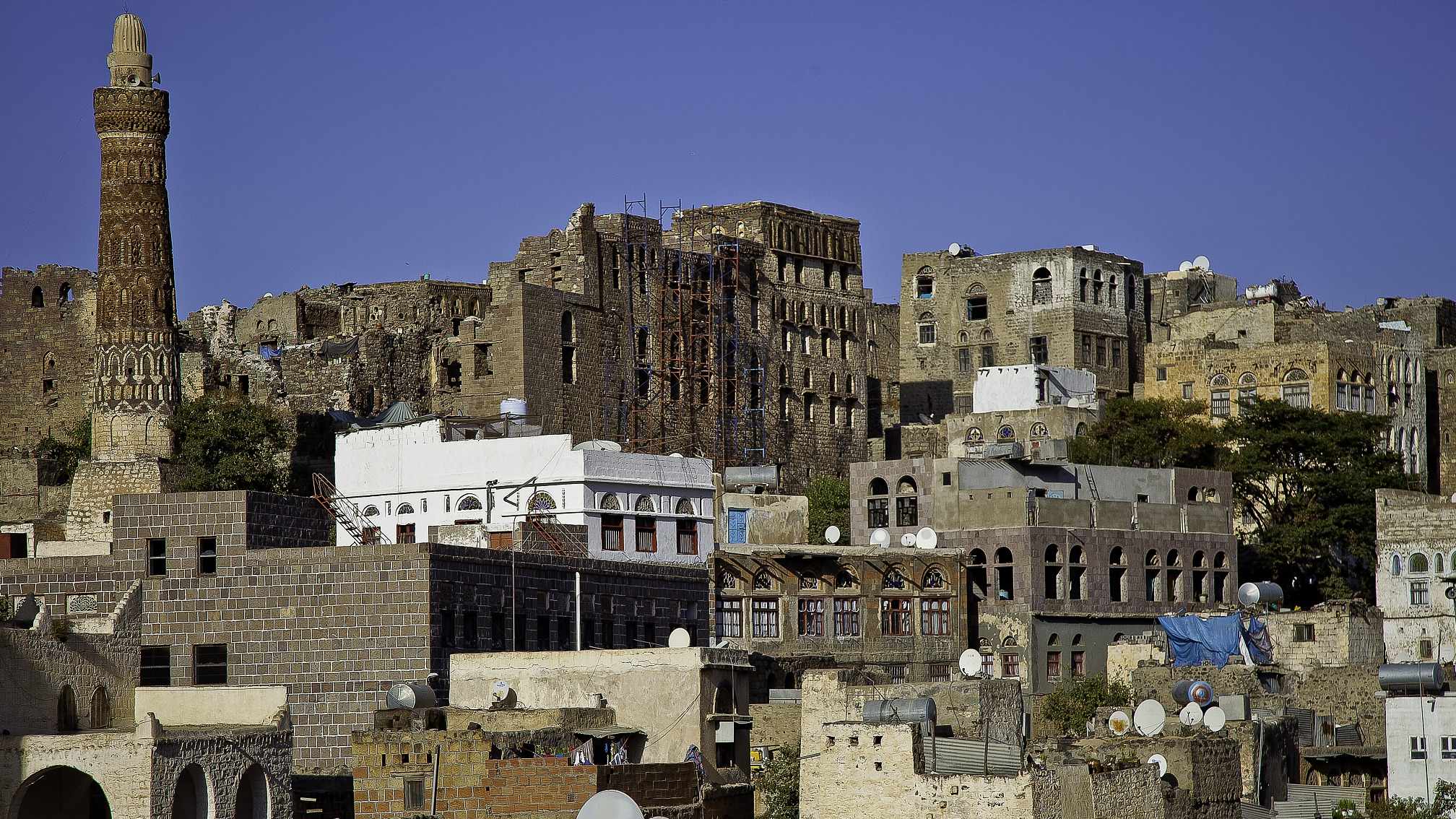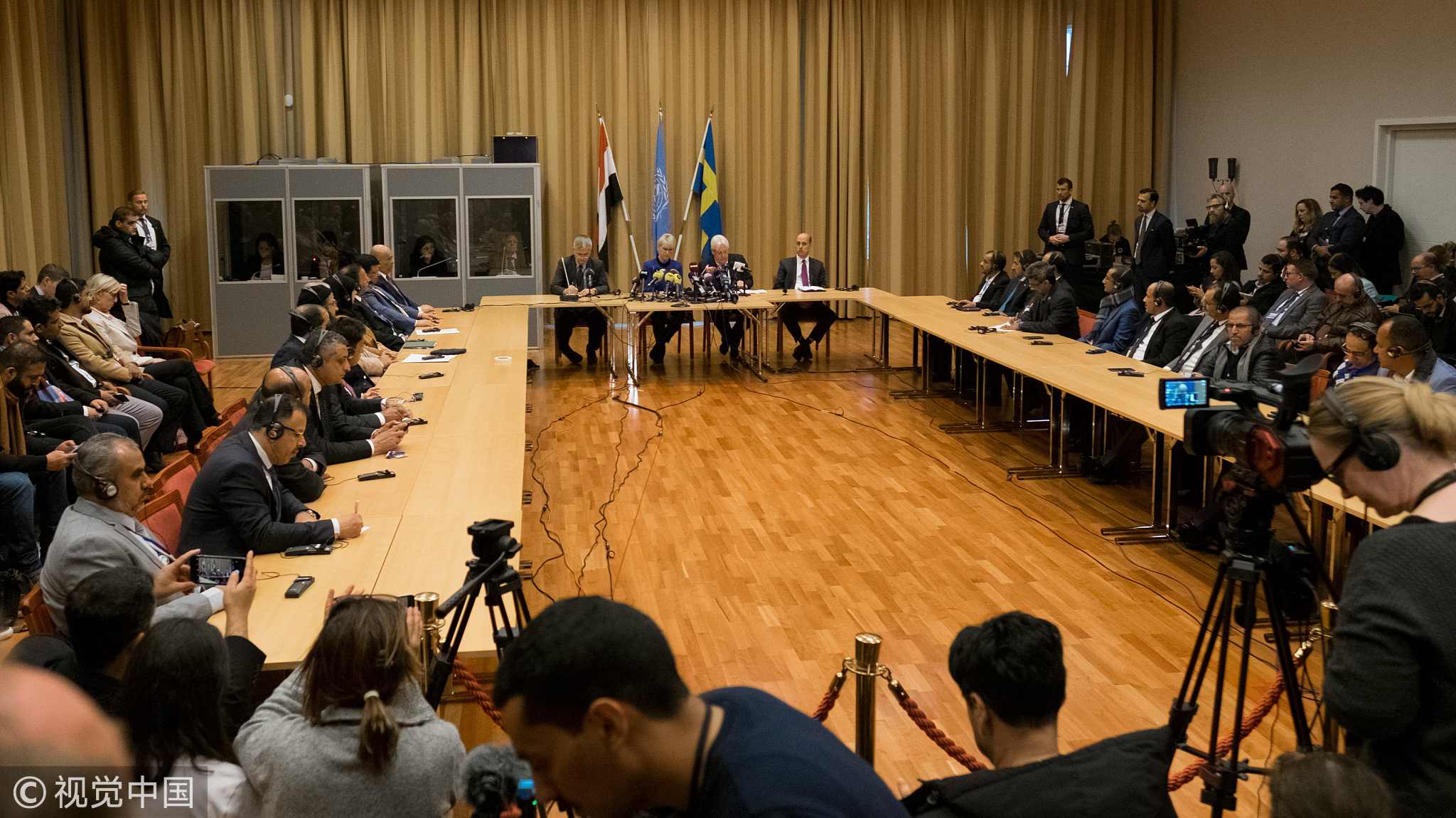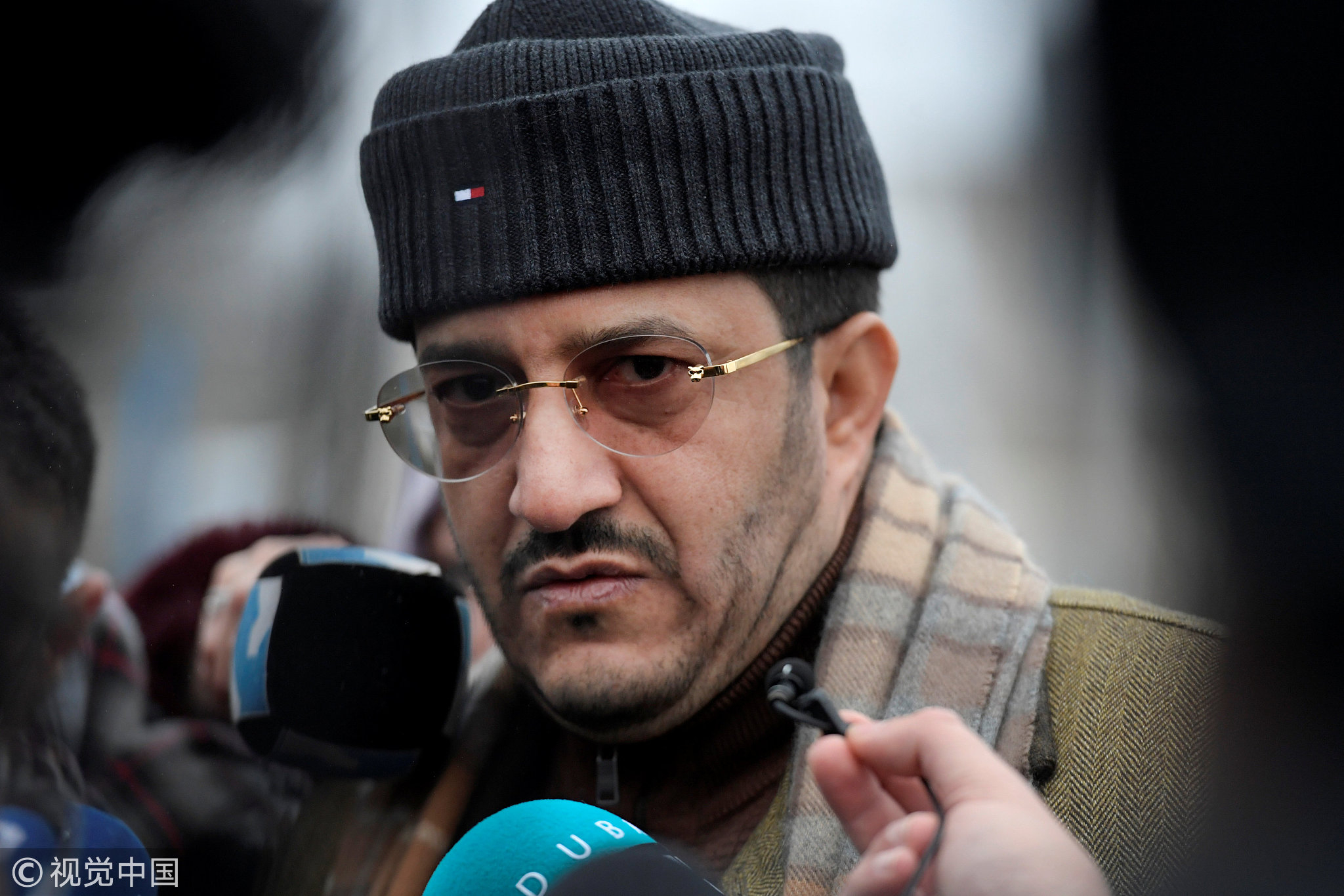
Opinions
12:56, 08-Dec-2018
Opinion: Is the end of the Yemen civil war in sight?
Updated
12:56, 11-Dec-2018
Wang Jin

Editor's note: Wang Jin is a research fellow at the Charhar Institute and a research fellow of the Northwest University of China. The article reflects the author's opinion, and not necessarily the views of CGTN.
Yemen's Saudi-backed government and Houthi militants gathered in Sweden this week for UN-sponsored peace talks, the first since 2016. Despite their long-term hostility, the warring sides reached consensus on a prison swap deal, making peace prospect more promising.
The three-year-long civil war has inflicted heavy losses to the country, dragging millions of citizens into a state of destitute and displacement. The Yemen government and Iran-assisted Houthis have been locked in a deadlock for years. Peace talks scheduled earlier in September collapsed following Houthi no-show.
The knotted warfare in Yemen and the two sides' lack of political will to negotiate are the main reasons for the failure of September's talks. But the past few weeks have seen new changes. The death of Saudi journalist Jamal Khashoggi has exerted a domino effect on the Middle Eastern geopolitics.
Khashoggi was known for his strong opposition to Saudi Arabia's intervention in the Yemen civil war. His death reminds the international community of the humanitarian crisis in Yemen, for which Saudi airstrikes should take the main responsibility. In this context, Saudi Arabia is pressured to make concessions and show up at the negotiation table.

Delegates from the Yemeni government and the Houthi militia sit down for peace talks in Sweden, December 6, 2018. /VCG Photo
Delegates from the Yemeni government and the Houthi militia sit down for peace talks in Sweden, December 6, 2018. /VCG Photo
In the meantime, the Yemen government's military offensives against Hodeidah, the country's main port city, has brought Houthi to talks. As one of the biggest communication hubs in Yemen, Hodeidah is of vital strategic importance to Houthis. As of June 2018, 75 percent of humanitarian and commercial cargo entering Yemen arrived via Hodeidah, according to media reports.
Houthi militants cannot afford to lose Hodeidah. Their acquisition of daily necessities would be a problem if the port city was captured by the Yemen government. Anxious about the military offensives against the city, Houthis joined the Sweden peace talks.
However, a fundamental solution to the Yemen crisis is unlikely at the current stage. Both pro-government forces and Houthi militants need to reconsider their political role before reaching a comprehensive peace accord.
The warring sides, in the past, have accused each other of being the "cause of unrest" and the "cause of civil war," while insisting they are the "only legal representative" of the Yemeni people. While pro-government forces accuse Houthis of "stealing" the capital city and other territories in Yemen, Houthis label the Yemen government as a "puppet" of Saudi Arabia and the U.S.

Yemen's Minister of Agriculture and Irrigation Othman Hussein Faid Mujali speaks to media on the Yemen peace talks in Sweden, December 7, 2018. /VCG Photo
Yemen's Minister of Agriculture and Irrigation Othman Hussein Faid Mujali speaks to media on the Yemen peace talks in Sweden, December 7, 2018. /VCG Photo
The Yemen government may want to restore the situation to how it was before 2014, when the Houthis were restrained in mountainous northern Yemen. But Houthi militants want to dominate a centralized Yemen government. The core question determining the outcome of peace talks is: who is the "only legal representative" of Yemen. The two sides should reconsider their political roles for breakthroughs in peace talks.
In fact, the Yemen civil war is a miniature of the geopolitical game between Saudi Arabia and Iran. The two regional powers carry a heavy weight at Yemen peace talks, and their bilateral ties are closely connected to Yemen warfare.
The Sweden peace talks, first since 2016, are undoubtedly a major progress. But still, the peace process in Yemen is a long journey, and the two warring sides should reconsider and readjust their stances for more positive outcomes.
(If you want to contribute and have specific expertise, please contact us at opinions@cgtn.com.)

SITEMAP
Copyright © 2018 CGTN. Beijing ICP prepared NO.16065310-3
Copyright © 2018 CGTN. Beijing ICP prepared NO.16065310-3